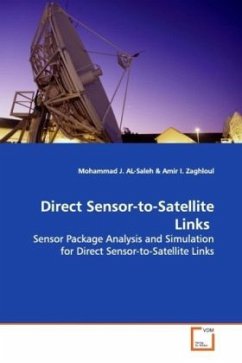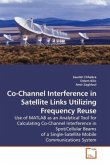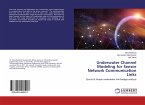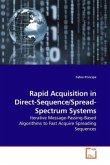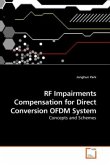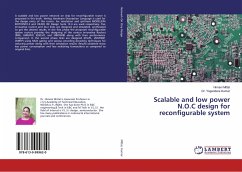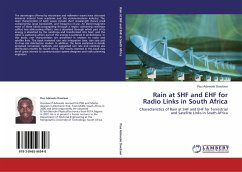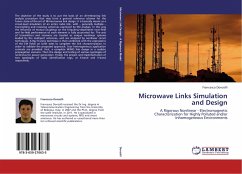This book investigates the design and the
performance of low-power microsensors that
communicate directly to a satellite or a
constellation of satellites. Information is spread
using pseudo noise (PN) or Barker codes. The sensors
use a single circular microstrip patch element with
a wide beamwidth or a miniature phased array antenna
that continuously scans to access the satellite(s).
The array beam is controlled with a beam-forming
network (BFN), which contains 3 or 4-bit phase
shifters, which can be made in micro-electro-
mechanical systems (MEMS) or in monolithic microwave
integrated circuits (MMIC). The antennas are
designed using array simulation program
called ARRAY and the results are used in another
simulation program called Advanced Design System
(ADS) to simulate the whole sensor package that uses
one of the antennas. The simulation results show
that a sensor as small as 2.35 cm in diameter is
able to send information with data rate of 1 kbps at
bit error rate less than 0.00001 to low-earth orbit
(LEO) satellites with a transmitted power of 27.5
microwatts (-15.6 dBm).
performance of low-power microsensors that
communicate directly to a satellite or a
constellation of satellites. Information is spread
using pseudo noise (PN) or Barker codes. The sensors
use a single circular microstrip patch element with
a wide beamwidth or a miniature phased array antenna
that continuously scans to access the satellite(s).
The array beam is controlled with a beam-forming
network (BFN), which contains 3 or 4-bit phase
shifters, which can be made in micro-electro-
mechanical systems (MEMS) or in monolithic microwave
integrated circuits (MMIC). The antennas are
designed using array simulation program
called ARRAY and the results are used in another
simulation program called Advanced Design System
(ADS) to simulate the whole sensor package that uses
one of the antennas. The simulation results show
that a sensor as small as 2.35 cm in diameter is
able to send information with data rate of 1 kbps at
bit error rate less than 0.00001 to low-earth orbit
(LEO) satellites with a transmitted power of 27.5
microwatts (-15.6 dBm).

